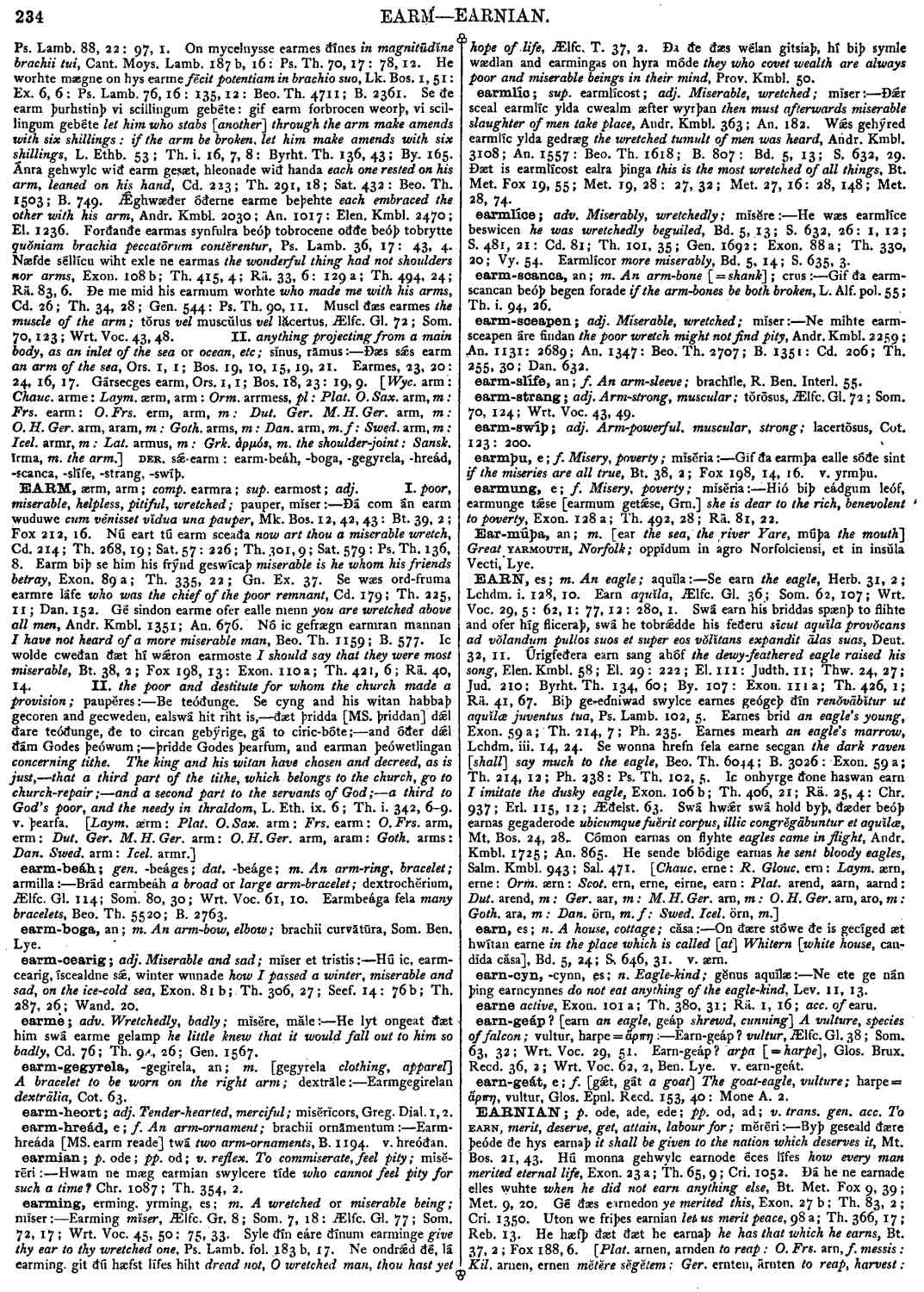EARM
- adjective
-
Ðá com án earm wuduwe
cum vēnisset vĭdua una pauper,
- Mk. Bos. 12, 42, 43: Bt. 39, 2;
- Fox 212, 16.
-
Nú eart tú earm sceaða
now art thou a miserable wretch,
- Cd. 214 ;
- Th. 268, 19;
- Sat. 57: 226 ;
- Th. 301, 9;
- Sat. 579: Ps. Th. 136, 8.
-
Earm biþ se him his frýnd geswícaþ
miserable is he whom his friends betray,
- Exon. 89 a ;
- Th. 335, 22;
- Gn. Ex. 37 .
-
Se wæs ord-fruma earmre láfe
who was the chief of the poor remnant,
- Cd. 179 ;
- Th. 225, 11;
- Dan. 152 .
-
Gé sindon earme ofer ealle menn
you are wretched above all men,
- Andr. Kmbl. 1351 ;
- An. 676 .
-
Nó ic gefrægn earmran mannan
I have not heard of a more miserable man,
- Beo. Th. 1159 ;
- B. 577 .
-
Ic wolde cweðan ðæt hi wǽron earmoste
I should say that they were most miserable,
- Bt. 38, 2;
- Fox 198, 13: Exon. 110 a ;
- Th. 421, 6;
- Rä. 40, 14.
-
Be teóðunge. Se cyng and his witan habbaþ gecoren and gecweden, ealswá hit riht is,—ðæt þridda [MS. þriddan] ðǽl ðare teóðunge, ðe to circan gebýrige, gá to ciric-bóte; —and óðer dǽl ðám Godes þeówum;—þridde Godes þearfum, and earman þeówetlingan
concerning tithe. The king and his witan have chosen and decreed, as is just,—that a third part of the tithe, which belongs to the church, go to church-repair;—and a second part to the servants of God;—a third to God's poor, and the needy in thraldom,
- L. Eth. ix. 6 ;
- Th. i. 342, 6-9.
Bosworth, Joseph. “EARM.” In An Anglo-Saxon Dictionary Online, edited by Thomas Northcote Toller, Christ Sean, and Ondřej Tichy. Prague: Faculty of Arts, Charles University, 2014. https://bosworthtoller.com/8657.
Checked: 1